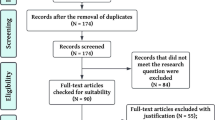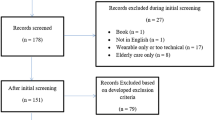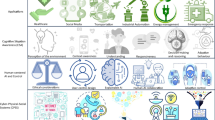Abstract
An activity monitoring and reminder delivery framework, referred to as iMessenger, is presented. iMessenger includes five independent modules and adopts a layered structure to assemble each of these modules: context sensing, context extraction, context management, context-aware reminders, and human–computer interactions. This paper presents the details of the context management module that has adopted ontological modeling and reasoning technologies. The ontological approach can support both distributed context integration and advanced temporal reasoning capabilities. iMessenger has the ability to infer inconsistencies between what the user was expected to do and what the user is actually doing, and supply appropriate feedback to encourage people to follow their predefined agendas correctly in addition to keep healthy postures during their daily activities. The framework has been validated using simulated scenarios within the Protégé environment.












Similar content being viewed by others
References
Abowd GD, Bobick AF, Essa IA, Mynatt ED, Rogers WA (2002) The aware home: a living laboratory for technologies for successful aging. Proceedings of the AAAI Workshop Automation as Caregiver, pp 1–7
Bettini C, Brdiczka O, Henricksen K, Indulska J, Nicklas D, Ranganathan A, Riboni D (2010) A survey of context modelling and reasoning techniques. Pervasive Mobile Comput 6(2):161–180
Chen H, Finin T, Joshi A (2004) An ontology for context-aware pervasive computing environments. Knowl Eng Rev 18(3):197–207
Cook D, Augusto J, Jakkula V (2009) Ambient intelligence: technologies, applications, and opportunities. J Pervasive Mobile Comput 5(4):277–298
Helal A, Cook DJ, Schmalz M (2009) Smart home-based health platform for behavioral monitoring and alteration of diabetes patients. J Diabetes Sci Technol (Online) 3(1):141–148
Horrocks I, Patel-Schneider PF, Boley H, Tabet S, Grosof B, Dean M (2004) SWRL: a semantic web rule language combining OWL and RuleML. W3C Member submission web. http://www.w3.org/Submission/2004/SUBM-SWRL-20040521. Accessed May 2011
Kang DO, Lee HJ, Ko EJ, Kang K, Lee J (2006) A wearable context aware system for ubiquitous healthcare. IEEE Conference on Engineering in Medicine and Biology Society, pp 5192
Lee JK, Sohn MM (2003) The extensible rule markup language. Commn ACM 46(5):59–64
Mabotuwana T, Warren J (2009) An ontology-based approach to enhance querying capabilities of general practice medicine for better management of hypertension. Artif Intell Med 47(2):87–103
Nugent C, Finlay D, Fiorini P, Tsumaki Y, Prassler E (2008) Editorial home automation as a means of independent living. IEEE Transa Auto Sci Eng 5(1):1–9
O’Connor M, Das A (2009) SQWRL: a query language for OWL, OWL: experiences and directions (OWLED). Fifth International Workshop, pp 1–8
Osmani V, Zhang D, Balasubramaniam S (2009) Human activity recognition supporting context-appropriate reminders for elderly. 3rd IEEE International Conference on Pervasive Computing Technologies for Healthcare, pp 1–4
Poland MP, Nugent CD, Wang H, Chen L (2009) Smart home research: projects and issues. Int J Ambient Comput Intell 1(4):32–45
Valiente-Rocha P, Lozano-Tello A (2010) Ontology and SWRL-based learning model for home automation controlling. Ambient Intelligence and Future Trends-International Symposium on Ambient Intelligence Springer, pp 79–86
Yamazaki T (2006) Beyond the smart home. Proceedings of the International Conference on Hybrid Information Technology, pp 350–355
Zhang S, McCullagh P, Nugent C, Zheng H (2009) A theoretic algorithm for fall and motionless detection. 3rd IEEE International Conference on Pervasive Computing Technologies for Healthcare, pp 1–6
Zhang S, McCullagh P, Nugent C, Zheng H (2010) Activity monitoring using a smart phone’s accelerometer with hierarchical classification. 6th IEEE International Conference on Intelligent Environments, pp 158–163
Zhang S, McCullagh P, Nugent C, Zheng H, Baumgarten M (2011a) Optimal model selection for posture recognition in home-based healthcare. Int J Mach Learn Cyber 2(1):1–14
Zhang S, McCullagh P, Nugent C, Zheng H, Black N (2011b) A subarea mapping approach for indoor localization. Proceedings on toward useful services for elderly and people with disabilities, LNCS 6719:80–87
Zhang S, McCullagh P, Nugent C, Zheng H, Black N (2011c) Reliability of location detection in intelligent environments. In: Novais P (ed) Ambient Intelligence-Software and Applications. Series of Advances in Intelligent and Soft Computing, vol 92. Springer, Berlin, pp 181–188
Acknowledgments
The authors acknowledge the support of University of Ulster Vice Chancellor Scholarship Programme, and thank all members of the Smart Environments Research Group for their help with collecting the experimental data.
Author information
Authors and Affiliations
Corresponding author
Rights and permissions
About this article
Cite this article
Zhang, S., McCullagh, P., Nugent, C. et al. An ontological framework for activity monitoring and reminder reasoning in an assisted environment. J Ambient Intell Human Comput 4, 157–168 (2013). https://doi.org/10.1007/s12652-011-0063-1
Received:
Accepted:
Published:
Issue Date:
DOI: https://doi.org/10.1007/s12652-011-0063-1




